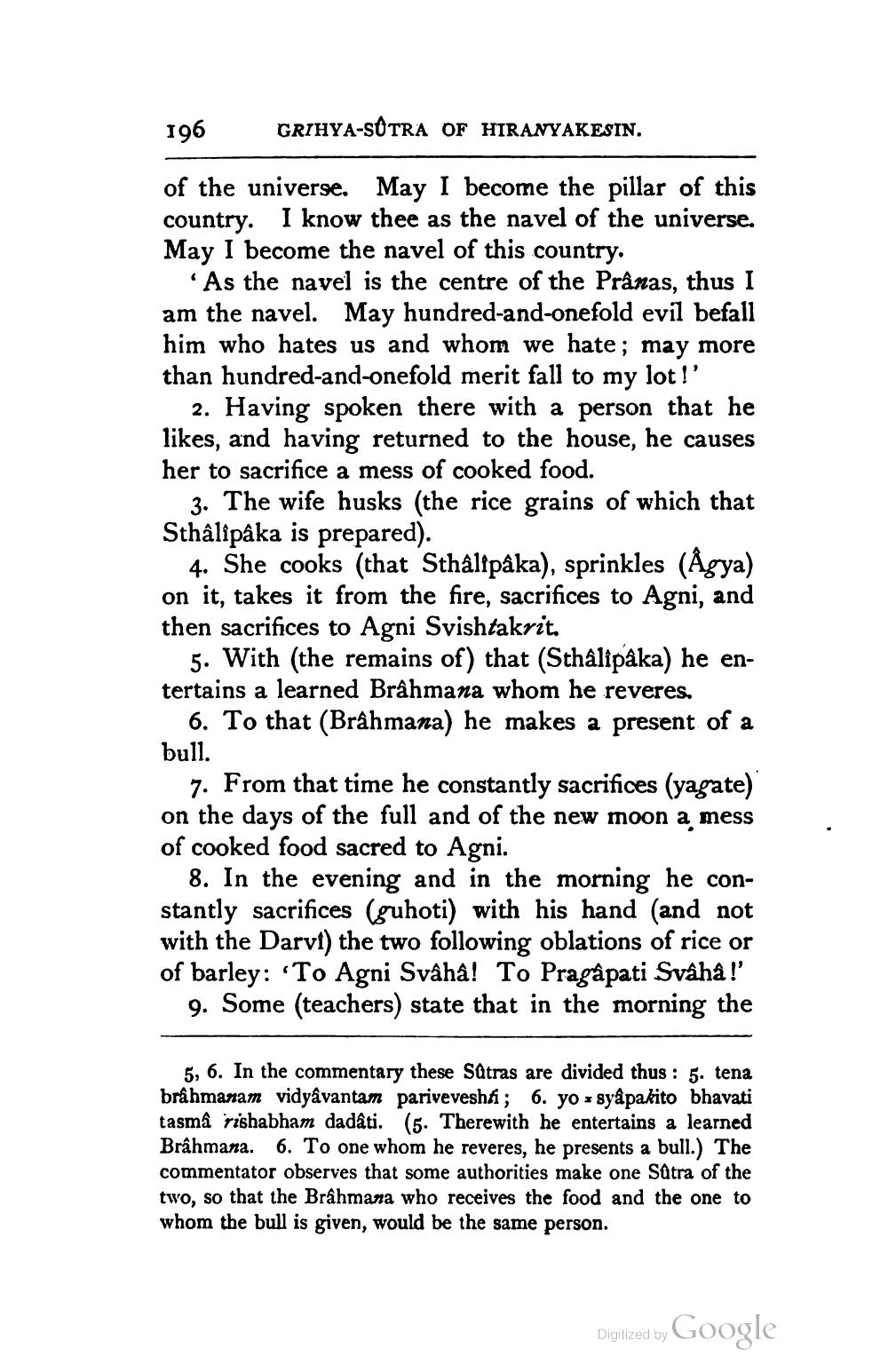________________
196
GRIHYA-SÚTRA OF HIRANYAKESIN.
of the universe. May I become the pillar of this country. I know thee as the navel of the universe. May I become the navel of this country.
As the navel is the centre of the Prânas, thus I am the navel. May hundred-and-onefold evil befall him who hates us and whom we hate; may more than hundred-and-onefold merit fall to my lot!'
2. Having spoken there with a person that he likes, and having returned to the house, he causes her to sacrifice a mess of cooked food.
3. The wife husks (the rice grains of which that Sthâlipáka is prepared).
4. She cooks (that Sthålfpåka), sprinkles (Ågya) on it, takes it from the fire, sacrifices to Agni, and then sacrifices to Agni Svishtakrit.
5. With (the remains of) that (Sthâlipäka) he entertains a learned Brâhmana whom he reveres.
6. To that (Brâhmana) he makes a present of a bull.
7. From that time he constantly sacrifices (yagate) on the days of the full and of the new moon a mess of cooked food sacred to Agni.
8. In the evening and in the morning he constantly sacrifices (suhoti) with his hand (and not with the Darvt) the two following oblations of rice or of barley: "To Agni Svâhâ! To Pragâpati Svâhâ !'
9. Some (teachers) state that in the morning the
5, 6. In the commentary these Sätras are divided thus: 5. tena brahmanam vidyâvantam parivevesh; 6. yo s syâpakito bhavati tasma rishabham dadati. (5. Therewith he entertains a learned Brahmana. 6. To one whom he reveres, he presents a bull.) The commentator observes that some authorities make one Sätra of the two, so that the Brahmana who receives the food and the one to whom the bull is given, would be the same person.
Digilized by Google




